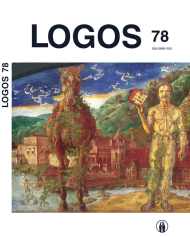Neformalioji Komunikacija: Gandai Kaip Socialinės Kontrolės, Saugos Ir Tapatumo Užtik Rinimo Priemonė
Non-formal Communication: Rumors as a Social Control, Security and Identity Assurance Tool
Author(s): Valdas PruskusSubject(s): Ethics / Practical Philosophy, Social Philosophy, Theory of Communication, Social psychology and group interaction, Social Norms / Social Control
Published by: Visuomeninė organizacija »LOGOS«
Keywords: rumour; identity; values; information; culture; communication; social control; media;
Summary/Abstract: The article discusses a non-formal communication form – rumors – and its social instrumental purpose, as well as it reveals the social role of rumors. It shows a social role for rumors in steering the behavior of the members of a group and in protecting the group’s identity. Also this social role helps to highlight the prevailing values and moral norms in social groups and reveals their reliability in comparison to universal norms.It defines the participants as a group whose members are the people who must comply with certain behavior rules. In compliance with those rules, persons are identified as members of the rumor group. The information residing in rumor, which is accepted by group members, reduces the tension and the threat of conflicts between individuals. Rumor in this respect, while carrying out the rehabilitation of internal group’s relations, at the same time helps the group remain as an integrated society.
Journal: LOGOS - A Journal of Religion, Philosophy, Comparative Cultural Studies and Art
- Issue Year: 2014
- Issue No: 78
- Page Range: 145-154
- Page Count: 10
- Language: Lithuanian

